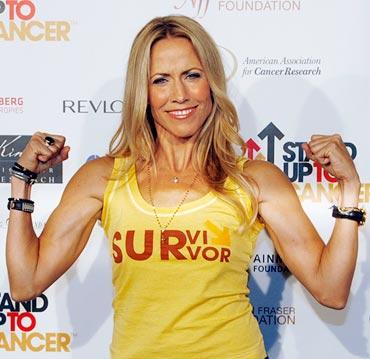 Undergoing breast cancer treatment? Well, here are some things to keep in mind.
Undergoing breast cancer treatment? Well, here are some things to keep in mind.
October being Breast Cancer Awareness Month, Julie Gralow of Breast Medical Oncology at the Seattle Cancer Care Alliance and co-author of Breast Fitness (St Martin's Press) has offered 10 tips for breast cancer patients during treatment.
1. Get specifics on your diagnosis and treatment.
In order to maximise your time with your heathcare providers, bring your questions with you in writing to your appointments. Make informed decisions; learn as much as you can about your diagnosis and treatment.
2. Spend time choosing your doctor.
Breast cancer specialists who work at dedicated cancer centres offer specific expertise as well as access to the latest treatments that are part of clinical studies. Such centres can provide other specialty services, usually under one roof, such as physical therapy, nutrition and social work.
3. Get the support you need for talking about your diagnosis.
Breaking the news to your friends and family that you've been diagnosed with breast cancer can be just as difficult as first hearing the news yourself from your doctor. You may feel concerned about upsetting your family and friends or worried about how they will react. Even after you have shared the news, at times you may find it difficult to communicate openly.
4. Seek help in navigating financial issues, if necessary.
Your hospital or clinic should have a social worker, patient navigator or financial services department to help you manage financial issues and deal with private insurance companies. If you have concerns, request an appointment.
5. Talk to your doctor about coping with menopause symptoms.
Breast cancer patients who have undergone chemotherapy, ovary removal, or who have had to discontinue hormone replacement therapy upon diagnosis may experience symptoms of menopause. Talk to your doctor about how to safely minimise menopausal symptoms.
6. Get good nutrition.
Your cancer treatment may influence your ability to taste and smell, and it may alter your digestion. You may prefer and tolerate more cooked versus raw vegetables, so a vegetable stew or soup may be more appealing than a salad. You may have more energy and less nausea if you eat smaller amounts of foods more frequently rather than eating three big meals per day. Try not to gain weight by overindulging and blowing your calorie budget.
7. Take steps to prevent lymphedema.
Lymphedema is a side effect of breast cancer treatment that involves swelling of the soft tissues of the arm, hand or chest wall. It isn't life threatening, but it needs to be treated to avoid getting worse. The swelling may be accompanied by numbness, discomfort and infection. There's no reliable way to assess your risk for lymphedema, but by taking proper precautions you can greatly reduce your chances of developing the condition.
8. Get exercise.
Gentle exercise during treatment, such as regular walks, can help with both the mental and physical effects of treatment. After treatment is completed, increasing your exercise gradually will help improve your fatigue and rebuild muscle tone.
9. Bone up on bone health.
Keeping your bones healthy throughout your life is important; however, if you're a woman who's been diagnosed with breast cancer, bone health is especially important. Research shows that some breast cancer treatments can lead to bone loss.
10. Treatment and work.
Some people are able to work throughout their cancer treatment. Yet for some, reducing one's work capacity or taking a break altogether may be necessary. If you take time off and then return to work shortly after your treatment ends, you may find that it helps you maintain your identity and even boosts your self-esteem, not to mention your income.
Image: Singer Sheryl Crow was diagnosed with breast cancer a few years ago. She began radiation therapy and adopted a take-it-as-it-comes attitude towards life. It worked. She hasn't had any cause to worry, since.
Photographs: Fred Prouser/Reuters










 © 2025
© 2025